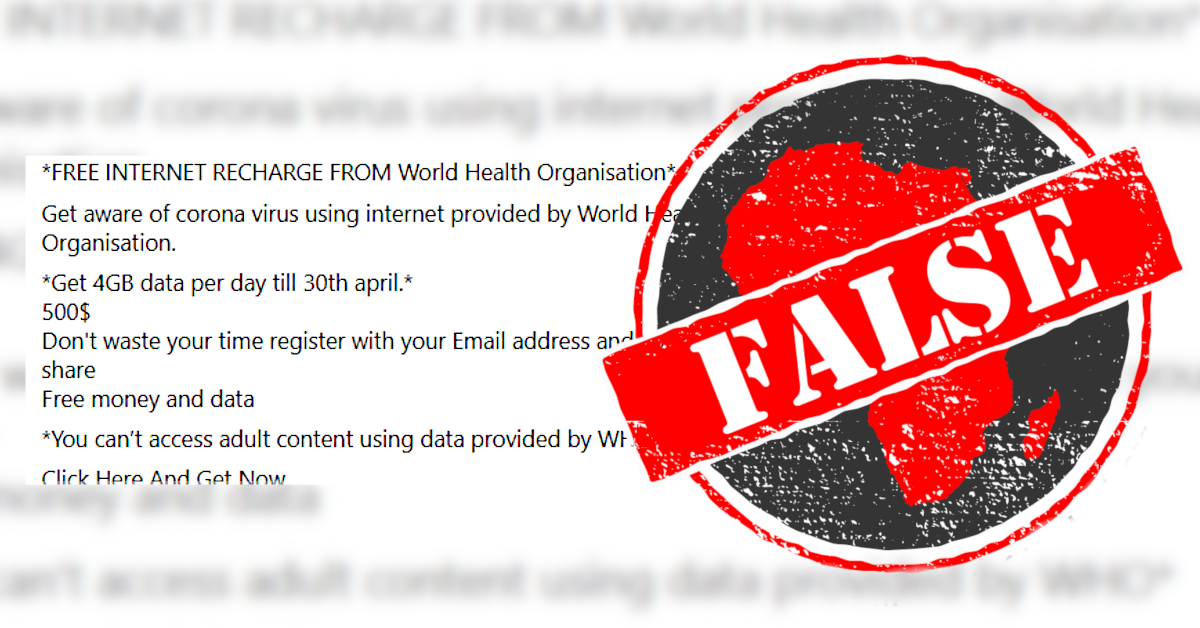A post shared on Facebook in Kenya claims that the World Health Organization is offering free internet access, so people can easily find information about the Covid-19 pandemic.
It claims that users can get “4GB data per day till 30th april” if they register with their email addresses.
The post includes a link to an external website, but this website does not mention the WHO or free data packages. It appears to be clickbait, and may carry possibly harmful links.
(Note: Please be careful as malware from suspicious websites could damage your computer or phone and compromise your privacy.)

Similar posts have been shared on Twitter, with the promise that the WHO is giving away 1 gigabyte per day. Is the international organisation really offering free data?
No. WHO Kenya have shared a screenshot of one of the posts with a red “FAKE NEWS” stamp on it, on their official Twitter account. They tweeted “Fake news! Ignore.”
The claims of free data are false. – Grace Gichuhi
It claims that users can get “4GB data per day till 30th april” if they register with their email addresses.
The post includes a link to an external website, but this website does not mention the WHO or free data packages. It appears to be clickbait, and may carry possibly harmful links.
(Note: Please be careful as malware from suspicious websites could damage your computer or phone and compromise your privacy.)

‘Fake news. Ignore’
Similar posts have been shared on Twitter, with the promise that the WHO is giving away 1 gigabyte per day. Is the international organisation really offering free data?
No. WHO Kenya have shared a screenshot of one of the posts with a red “FAKE NEWS” stamp on it, on their official Twitter account. They tweeted “Fake news! Ignore.”
The claims of free data are false. – Grace Gichuhi
Republish our content for free
For publishers: what to do if your post is rated false
A fact-checker has rated your Facebook or Instagram post as “false”, “altered”, “partly false” or “missing context”. This could have serious consequences. What do you do?
Click on our guide for the steps you should follow.
Publishers guideAfrica Check teams up with Facebook
Africa Check is a partner in Meta's third-party fact-checking programme to help stop the spread of false information on social media.
The content we rate as “false” will be downgraded on Facebook and Instagram. This means fewer people will see it.
You can also help identify false information on Facebook. This guide explains how.


Add new comment